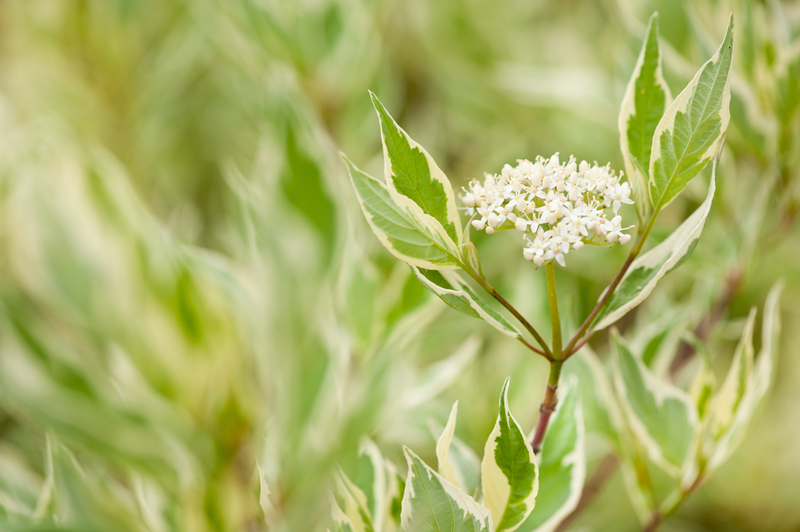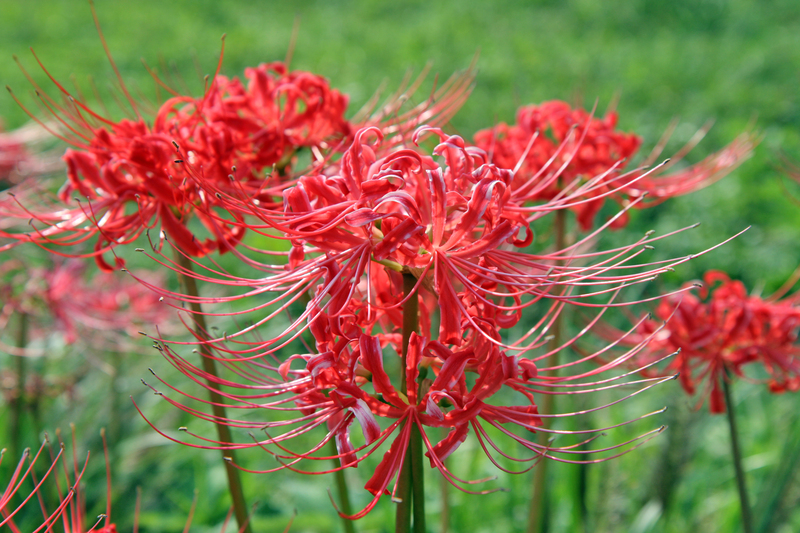Creating Abundant Soil from Waste
Posted on 03/07/2025
Creating Abundant Soil from Waste: An In-Depth Guide to Regenerative Practices
As the world continues to grapple with mounting landfill waste and degraded soils, the drive towards sustainable practices is more important than ever. One highly effective and eco-friendly solution lies in creating abundant soil from waste. Through methods like composting, vermiculture, and innovative upcycling, it's possible to transform what might be considered garbage into rich, productive earth. This comprehensive article will explore various ways to turn organic waste into healthy, thriving soil, contributing to both environmental health and productive gardens.

Why Creating Abundant Soil from Waste Matters
Soil is the foundation of life on Earth. Sadly, practices like over-farming, use of chemical fertilizers, and improper waste disposal have depleted soil health globally. Not only does this threaten food security, but it also contributes to climate change and biodiversity loss. By recycling waste into nutrient-rich soil, we can:
- Reduce landfill waste and lower greenhouse gas emissions.
- Restore soil fertility and natural biodiversity.
- Empower communities to grow healthy, organic food.
- Reduce the need for chemical fertilizers and pesticides.
- Foster a circular economy where resources are regenerated--not wasted.
Understanding Soil Formation and Degradation
Before diving into the methods of transforming waste into soil, it's important to understand the basics of soil creation and decline.
How Soil Forms
Soil is birthed from the slow weathering of rocks, combined with organic decomposition from plants, animals, and microorganisms. Over centuries, layers build up, teeming with life and nutrients. However, in today's era, soil is disappearing at alarming rates--estimates suggest we lose 24 billion tons of fertile soil globally each year.
What Causes Soil Degradation?
A variety of human activities contribute to soil impoverishment, including:
- Intensive, conventional agriculture.
- Deforestation.
- Excessive use of chemical amendments.
- Poor waste management practices.
One major remedy is to revitalize soils by redirecting organic waste away from landfills and back into the land.
What Qualifies as "Waste" for Soil Creation?
Not all waste is suitable for soil building, but much of our organic, biodegradable trash is highly beneficial. The main sources include:
- Food scraps: fruit and vegetable peels, coffee grounds, eggshells, grains, etc.
- Yard waste: leaves, grass clippings, pruning material, twigs.
- Paper products: uncoated, shredded paper and cardboard (avoiding glossy or ink-laden pages).
- Bio-based packaging and compostable containers.
Composting: A Cornerstone of Soil Building from Waste
What is Composting?
Composting is a natural process where organic materials are broken down by microorganisms into humus--a dark, crumbly, soil-like material rich in nutrients. Composting is both simple and profound: it harnesses the natural cycles of decay and rebirth, turning waste into fertile soil.
How to Compost at Home
Home composting is accessible and impactful. Here's a quick guideline:
- Select a site: Choose a well-drained spot accessible year-round.
- Balance "greens" and "browns":
- Greens: nitrogen-rich materials (food scraps, grass clippings, coffee grounds).
- Browns: carbon-rich materials (dry leaves, branches, straw, cardboard).
- Aerate: Turn the pile regularly to supply oxygen to microbes.
- Manage moisture: The pile should be as damp as a wrung-out sponge.
- Wait and harvest: In a few months, you'll have dark, crumbly compost ready to enrich your garden beds.
Types of Composting
- Traditional Pile or Heap: Layering greens and browns in a loose mound.
- Tumbler Bins: Enclosed bins rotated for aeration--a great option for small spaces.
- Bokashi Composting: Uses fermentation with beneficial microbes, suitable for all food waste including meat and dairy.
Vermicomposting: Harnessing Worms for Soil Revival
Vermicomposting employs specific species of earthworms (like red wigglers) to digest organic matter and produce "worm castings"--some of the best natural fertilizer and soil amendment available. This method is especially ideal for smaller spaces or urban areas, as it can be performed indoors.
Getting Started with a Worm Bin
- Create or purchase a worm bin: Ensure the container is opaque, ventilated, and has a tight-fitting lid.
- Prepare bedding: Shredded paper, coconut coir, or aged compost make good bedding.
- Add worms: Start with a healthy colony of red wigglers.
- Feed your worms a regular supply of fruit and veggie scraps (avoid meats and dairy).
- Harvest castings in 2-6 months for use in potting mix or soil amendment.
Benefits of Vermicomposting include faster decomposition, compact bins, and castings that dramatically improve soil structure, water retention, and nutrient content.
Alternative Methods: Creating Soil from Unconventional Waste
Biochar: Turning Woody Waste into Carbon-Rich Soil Amendment
Biochar is produced by heating organic material (like brush or crop residues) in a low-oxygen environment. The result is a stable form of carbon that, when added to soil, improves fertility and water retention while sequestering carbon for centuries.
Leaf Mold: Simple, Effective, and Underappreciated
Fallen leaves are often bagged and sent to the landfill. However, by allowing damp leaves to decompose over a year or two (without much effort), you create leaf mold--a crumbly, earthy material prized by gardeners for its water-holding and microbial benefits.
Trench Composting
For those who want a low-maintenance approach, trench composting involves digging a hole or trench, burying food waste directly, and letting soil organisms do the work. Over months, microfauna break down the organic matter, enriching the surrounding ground.
Turning Kitchen and Garden Waste into Garden Gold
Frequently overlooked food scraps and yard waste can be transformed into abundant soil in the garden. Here's how you can maximize your yield:
- Chop or shred material before composting for quicker breakdown.
- Avoid diseased plants and seed heads to prevent spreading to new beds.
- Add compost to soil in spring and fall for best results.
- Mulch with leaves or straw to further protect and feed the soil.
The Science of Soil Abundance from Waste
Healthy soil is alive: a single gram of rich earth can contain billions of bacteria and fungi, not to mention myriad beneficial insects and worms. When we convert waste to soil, we are rebuilding these vibrant communities. The result is abundant, resilient earth that:
- Resists erosion and holds water better.
- Contains macronutrients (N, P, K) and essential micronutrients.
- Encourages deep root growth for healthier plants.
- Supports a complex ecosystem of beneficial soil life.
Common Questions About Soil Creation from Waste
What can't be composted?
While most kitchen and yard waste is perfect for soil building, avoid these:
- Meat and dairy (except with Bokashi or commercial methods).
- Oily foods and large bones.
- Pet feces (unless in specialized composters).
- Glossy or plastic-coated paper.
- Weeds with seeds or invasive roots.
How long does it take to create soil from waste?
- Composting: 2-12 months, depending on method and conditions.
- Vermicomposting: 2-6 months, often faster for small volumes.
- Leaf mold: 12-24 months; can be hastened by shredding.
- Trench composting: Organic matter will break down over 6-12 months, enriching the surrounding earth.
Does composting really help the environment?
Absolutely. Composting slashes methane emissions from landfills, preserves landfill space, recycles nutrients, and builds living soils that sequester carbon while supporting food production.
Community and Large-Scale Efforts: Soil from Urban Waste
Municipal composting programs and community gardens play a huge role in creating plentiful soil from urban waste. By collecting organic waste city-wide, processing it professionally, and distributing finished compost, cities can:
- Divert tons of waste from landfills.
- Provide jobs in green industries.
- Offer free or low-cost compost to residents and urban farms.
- Beautify public spaces and improve urban food security.
Innovations and Future Opportunities in Upcycling Waste to Soil
With advances in technology and a rising awareness of sustainability, new methods emerge every year for upcycling waste into abundant soil:
- Startup companies turning brewery grains, coffee chaff, and food scraps into custom soil blends.
- In-vessel composting for offices, schools, and apartments.
- Mycoremediation: Using mushrooms to transform waste and restore contaminated soils.
- Compostable bioplastics made from food or plant waste, contributing to soil rather than microplastics pollution.

Actionable Tips for Starting Your Own Waste-to-Soil Project
- Begin small: Add a countertop compost bin or worm box to your kitchen.
- Learn what your community offers: Join or start a local composting coalition.
- Collect leaves and yard waste: Save them for mulch or home-made leaf mold.
- Feed your soil: Apply finished compost or castings to beds, pots, or lawns regularly.
- Encourage neighbors to participate--the more waste diverted, the greater the impact.
Conclusion: Abundance is Possible When We Turn Waste Into Soil
Creating abundant soil from waste isn't just a feel-good eco-trend--it's an essential, practical response to the intertwined challenges of waste, food, and environmental security. By embracing time-tested techniques like composting, vermiculture, and innovative methods like biochar and community-scale recycling, every household, business, or municipality can contribute to a regenerative future.
Each banana peel, leaf pile, or wilted vegetable you redirect from the landfill to the compost pile is a step towards building rich, living soil. That soil, in turn, supports healthier people, plants, and planet. Abundance truly grows from the ground up--especially when we turn waste into hope, health, and harvest.
Start your journey today: save your scraps, nurture your soil, and reap the rewards of a more resilient, bountiful earth.
Latest Posts
Curating an Interactive Outdoor Haven for Kids
Essential Garden Safety Tips for Dog Owners
Evergreen Climbers for Shade: Envisioning Verdant Sanctuaries
9 Crucial Gardening Tips to Inspire the Budding Botanist in You

